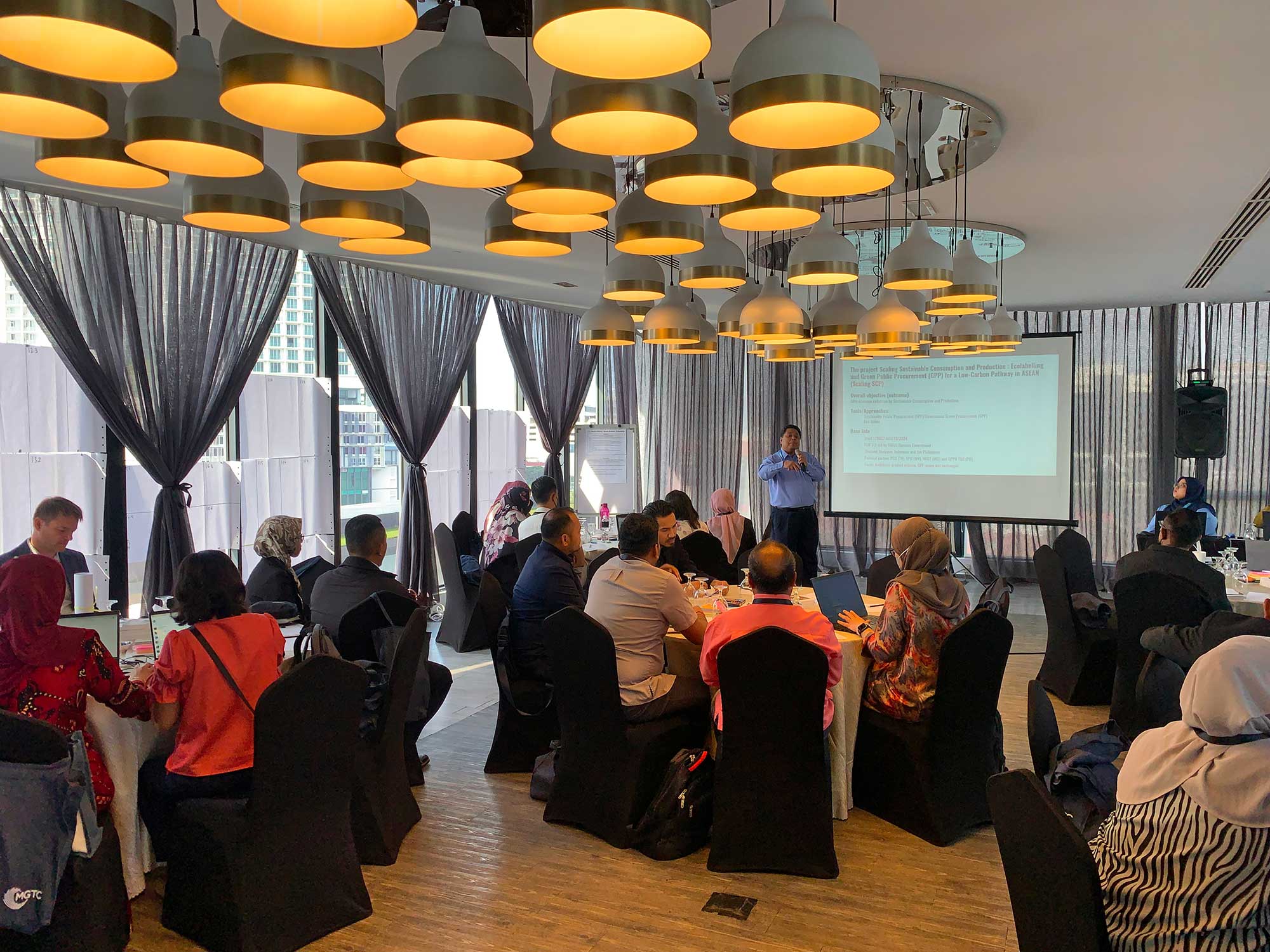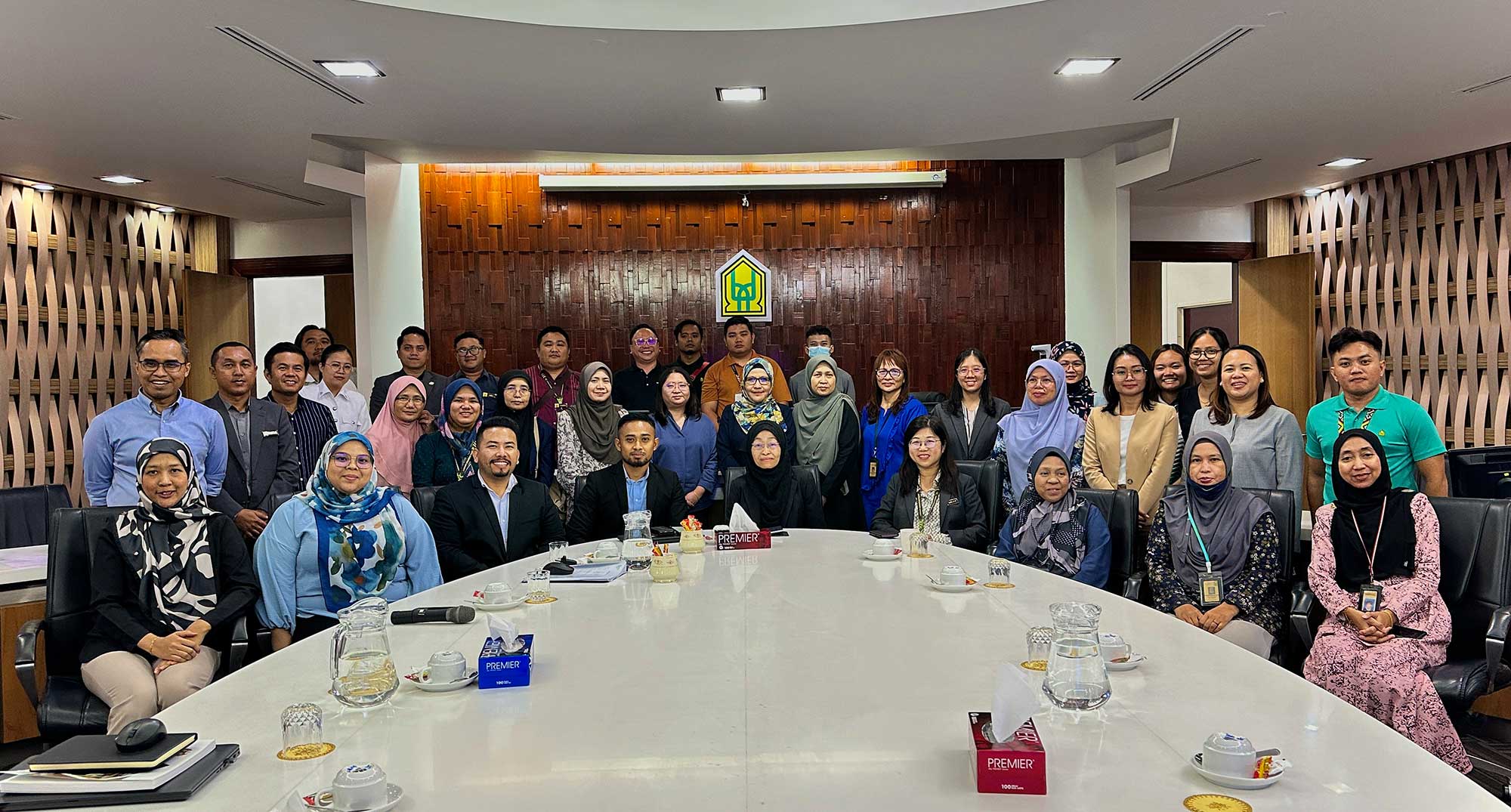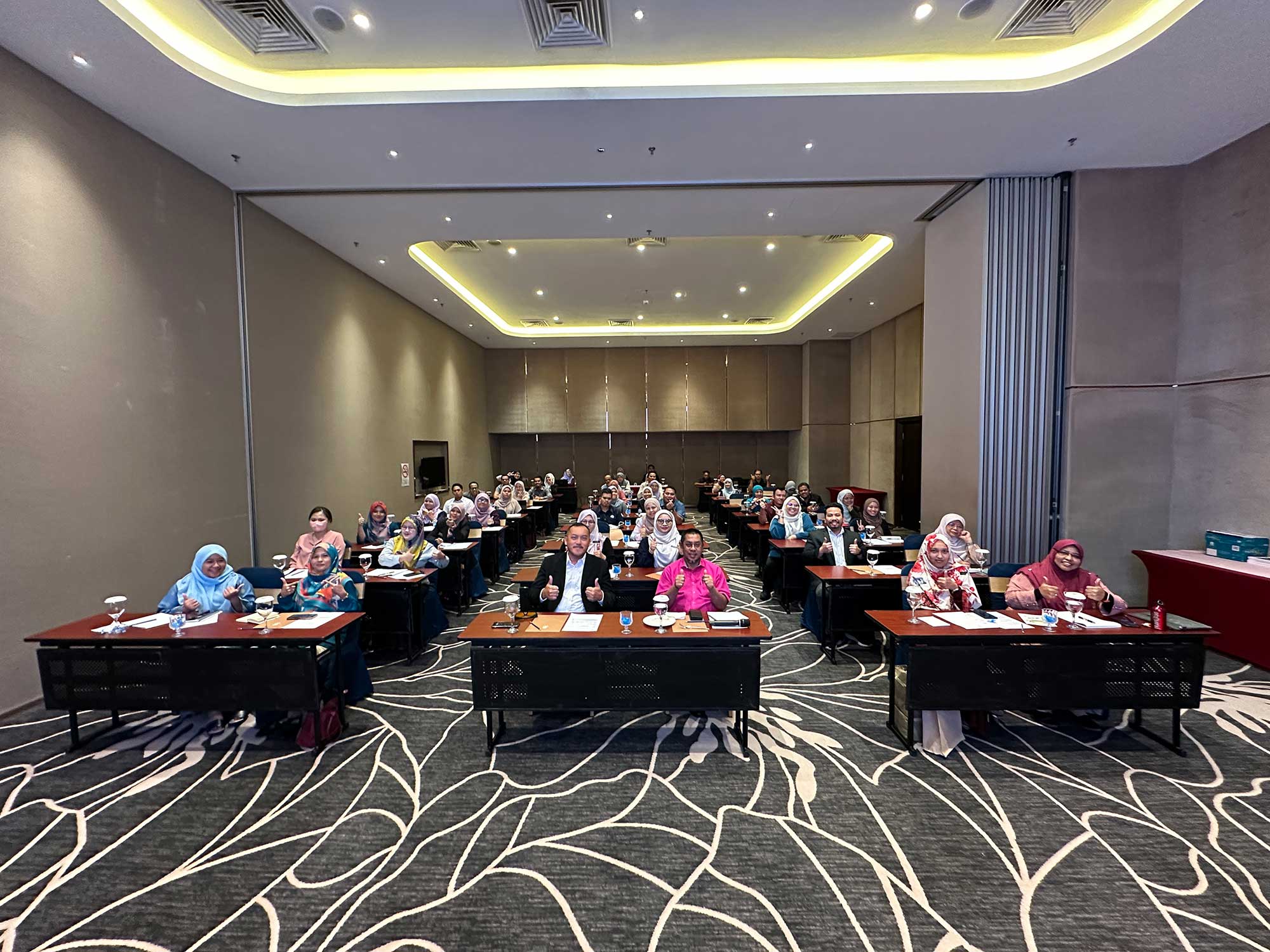Malaysia Expands Government Green Procurement (GGP) to State and Local Authorities

Kick-off workshop attended by each pilot project implementor
- Malaysia scales up Green Public Procurement (GPP) to state and local authorities
- The scarcity of eco-friendly products and services as well as few suppliers meeting GPP standards are main barriers for driving GPP
- Malaysia continues advancing GPP through various initiatives to make GPP mandatory
The ASEAN region has experienced rapid economic growth driven by domestic consumption and international trade. However, this growth has been accompanied by unsustainable consumption patterns, leading to resource exploitation and environmental degradation.
Recognising the need for a transition to sustainable consumption and production (SCP) patterns, the Scaling Sustainable Consumption and Production (Scaling SCP) project focuses on increasing awareness and building capacities in Thailand, Malaysia, Indonesia and the Philippines. The project strengthens sustainability information policies and tools, particularly through Sustainable Public Procurement (SPP) and eco-labelling. Thailand plays a crucial role in this endeavor as the frontrunner in the region serving as case-giver for its ASEAN peers.
However, the Government Green Procurement (GGP) initiative in Malaysia is opening a new chapter as it expands its reach to include state and local authorities. Under the guidance of the Malaysian Ministry of Economy, the Scaling SCP project has commenced piloting the implementation of GGP at state and local authority levels. Funded by the International Climate Initiative (IKI) of the German Federal Ministry for the Environment, Nature Conservation, and Nuclear Safety and Consumer Protection (BMUV), the project has been entrusted to GIZ for execution. Collaborating with the Malaysian Green Technology and Climate Change Corporation (MGTC) and the German Öko-Institute e.V., GIZ is leading the implementation of this project.
Since its inception in 2013, the GGP Programme has made remarkable strides, guided by the GGP Long-Term Action Plan of the Malaysian Government. Starting with gradual expansion during its first phase, the programme has now achieved full deployment across all federal government offices. As it enters its second phase, the initiative aims to extend GGP coverage to 25% of all state and local authorities by 2025, aligning with the ambitious objectives of the Twelfth Malaysia Plan. This expansion also supports the carbon neutrality target by 2050 set forth by the prime minister during the recent COP in Dubai. Moreover, the project contributes to the Sustainable Development Goal 12.7: Responsible Consumption and Production.
The GGP pilot project is currently being implemented in three state governments: Sarawak, Melaka, and Johor, along with two local authorities: Ipoh City Council and Petaling Jaya City Council. In addition to its primary goals, the project also aims to evaluate and refine the newly designed GPP monitoring and evaluation system, with support from the Scaling SCP project.
In 2023, the pilot project secured substantial support from decision-makers in the pilot states and local authorities, ensuring alignment with domestic strategies. Additionally, the project successfully trained over 400 participants, with a noteworthy 47% participation rate of females. These participants, including pilot implementers, suppliers, and contractors, were equipped with the knowledge and skills required to integrate GGP into their procurement practices.
The project’s success has prompted other local authorities to seek support. As a result, additional GGP seminars were arranged for Kuala Lumpur City Hall (DBKL), Melaka Green Technology Corporation (PTHM), and Bintulu Development Authority (BDA). This notable interest at such a high level further underscores Malaysia’s strong commitment to GGP.

GGP training to officials of Bintulu Development Authority
While Malaysia remains committed to a greener future, obstacles have emerged during pilot projects. These challenges involve the availability of green products and services, as well as the identification of compliant suppliers. The scarcity of eco-friendly options, especially those certified by eco-label, is a significant barrier, underscoring the need for enhanced support in developing green markets. Additionally, finding suppliers or bidders who meet GGP standards proves challenging. Moreover, prevailing procurement practices prioritise price over lifecycle costs (LCC). Overcoming these barriers requires concerted efforts to expand green market offerings, improve mechanisms for identifying compliant vendors, and strengthen capacities for LCC tendering. Moving forward, the Scaling SCP project will evaluate the effectiveness and impacts of pilot projects, including GHG mitigation and cost-savings, through its newly developed monitoring and evaluation system.
Moving forward: Making GGP Mandatory
Acknowledging the transformative role of the initiative in advancing sustainability within the public sector, the Ministry of Finance has taken a decisive step by issuing Treasury Circular 1.9, signalling a significant move towards mandatory GGP adoption. This circular mandates agencies to fully integrate GGP (100%) for specific product and service groups, encompassing ICT equipment, indoor and outdoor lighting, paper, printers, air conditioners, packaging products, electrical appliances, and solar energy systems. Additionally, agencies are encouraged to implement GGP by at least 50% in seven additional product categories.
This commitment has motivated the state of Johor, one of Scaling SCP’s pilot sites, to incorporate Circular 1.9 into its own state treasury regulations, showcasing robust leadership and dedication at the local level. This exemplifies the potential for a collaborative and multi-layered approach to achieving widespread GGP adoption across Malaysia.
In anticipation of the conclusion of Germany’s support in 2024, the Malaysian GGP initiative remains steadfast in its commitment to advancing green procurement practices. To lay the groundwork for this transition, the Scaling SCP project will organise various regional workshops aimed at expanding GGP awareness and facilitating knowledge sharing to allow all provinces and local governments to start GGP.
The continued emphasis on programme expansion, making GGP progressively mandatory and addressing challenges, underscore a firm commitment to establishing GGP as standard practice. The GGP initiative serves as a testament to Malaysia’s dedication to cultivating a greener and more sustainable future. For more information and updates on the GGP initiative in Malaysia, please visit www.mgtc.gov.my or www.myhijau.my.

GGP briefing to government officials and local authorities in the State Government of Melaka
Muhammad Syukri Jamil
Junior Advisor of Scaling SCP, Malaysia
Email: syukri.jamil(at)giz.de